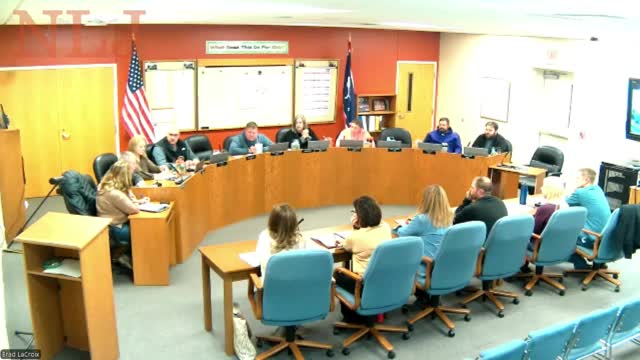District officials warn of major maintenance shortfalls, aging boilers and potential pool closure without funding
Get AI-powered insights, summaries, and transcripts
Subscribe
Summary
District leaders told the board the school pool and other facilities need significant investment; they outlined limited state major-maintenance funding, growing repair backlogs, and options including grants, donations or service reductions.
District administrators and facilities staff described pressing maintenance needs across Weston County schools at the Jan. 8 board meeting, highlighting aging boilers, worn fleet vehicles, and a deteriorating pool that administrators estimated could require roughly $500,000—60,000 to repair.
Facilities director Adam and the superintendent explained that the district's major maintenance funding is limited and that about $90,000 per year (10% of major maintenance allocations) is the maximum the district may use for non-classroom venues such as pools and sports fields. Administrators said the school's square footage does not align with state funding formulas and that enrollment declines will further reduce future revenue, leaving the district to "rob Peter to pay Paul" to cover essential building needs.
The meeting cataloged a string of specific maintenance concerns: two plow pickup trucks out of service, high-cost HVAC and roofing service contracts, a boiler that experienced a gas-control failure and expensive replacement-parts lead times, and rising inspection and preventative-maintenance costs that the state will not allow to be funded from major-maintenance money. Administrators said some preventative-maintenance contracts previously covered by state funds now must be paid from general funds.
Board members and staff discussed short-term and longer-term responses: pursue grants (including the Daniels Fund and recreation grants), solicit private donations and sponsors, explore cooperative purchasing and co-op contracts, or prioritize essential classroom maintenance over recreational venues. Several trustees suggested charging modest facility or event fees (for non-student community events) to help offset custodial and utilities costs; others warned that fees could reduce participation in youth programs.
Special programs were raised in the context of cuts: Special Olympics participation, previously funded by special-education grant money, can no longer be paid from that grant and will require outside sponsorship; administrators asked the board to consider community appeals if local sponsors cannot be found.
What was said in the meeting: One board member summarized the dilemma succinctly: "We're gonna have to give up something," noting that if state aid does not increase, the district must prioritize staff pay and benefits and essential building systems over some extracurricular amenities. Administrators said they will present a prioritized, sequenced plan for maintenance and repairs and continue pursuing funding options.
Ending: Staff will return with grant applications, cost estimates and a prioritized maintenance plan; board members urged outreach to state legislators and the community to explain the funding constraints and seek solutions.
